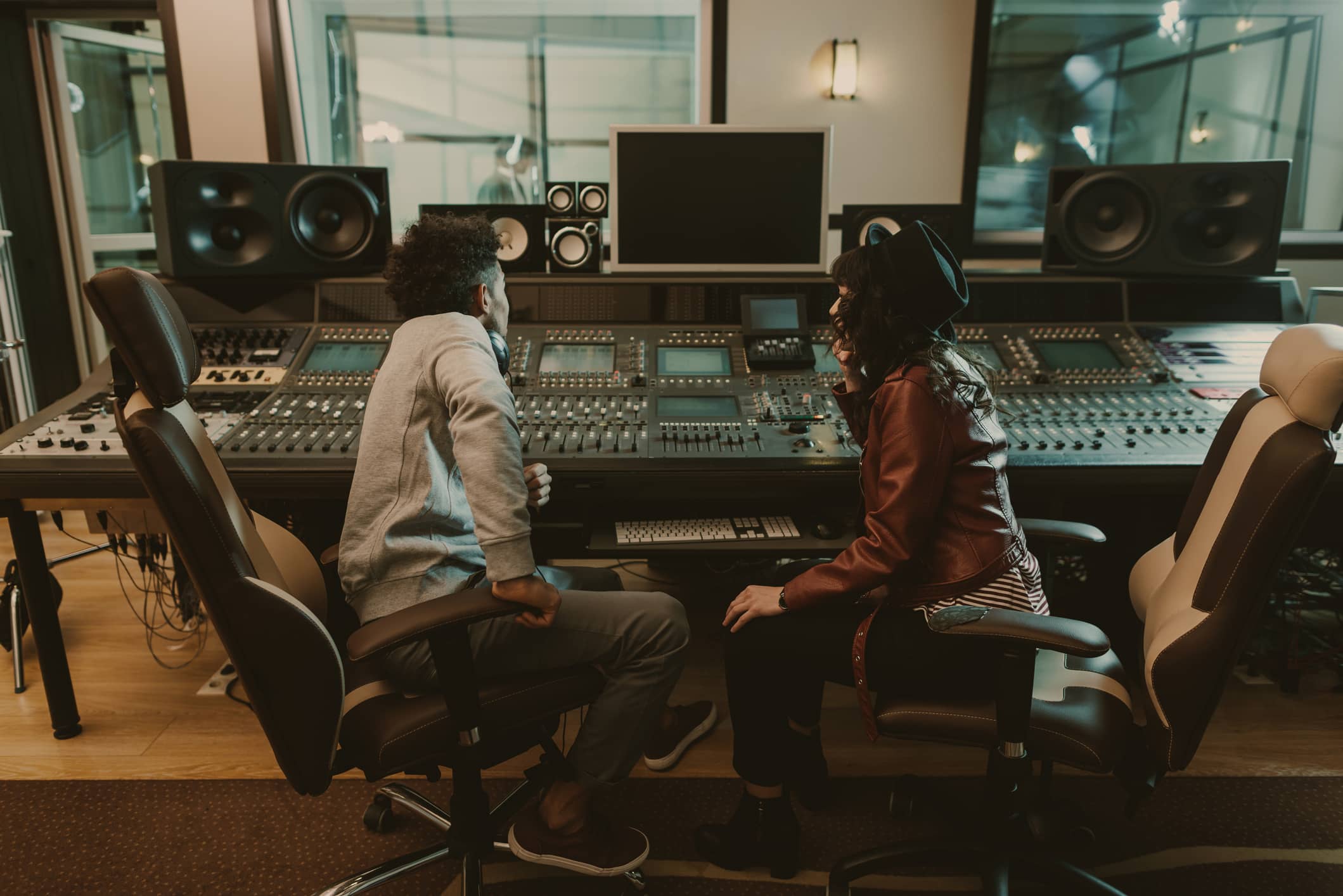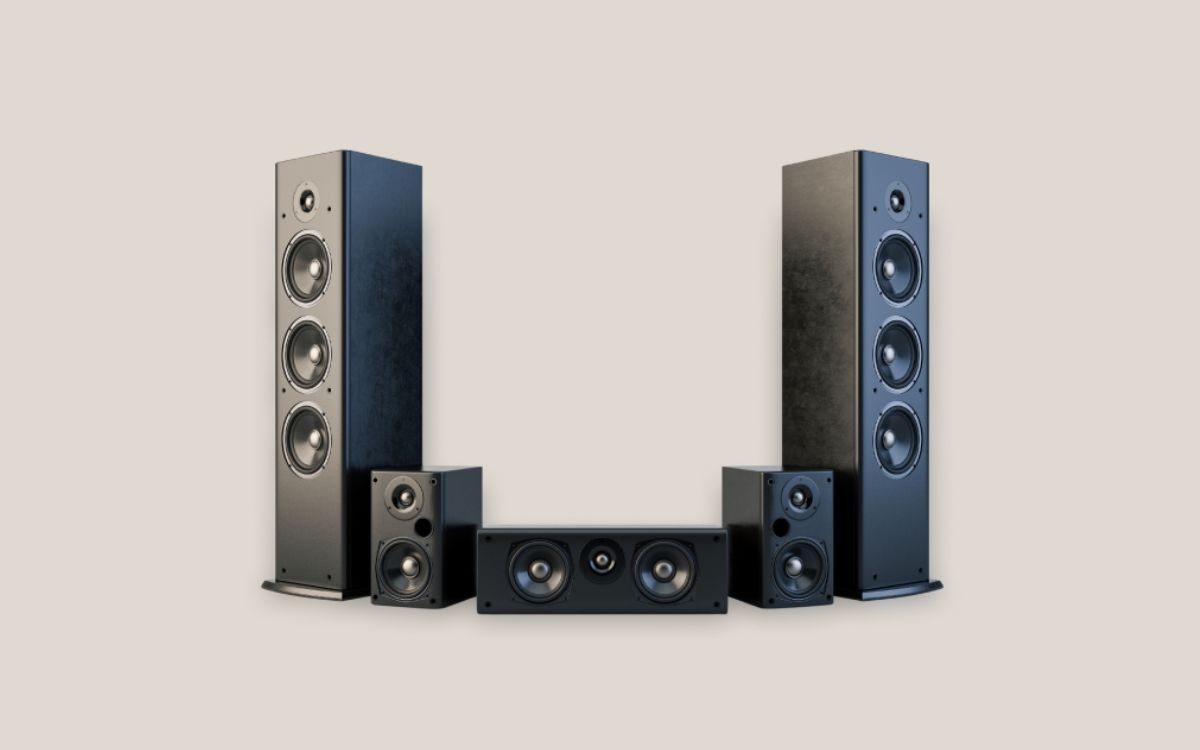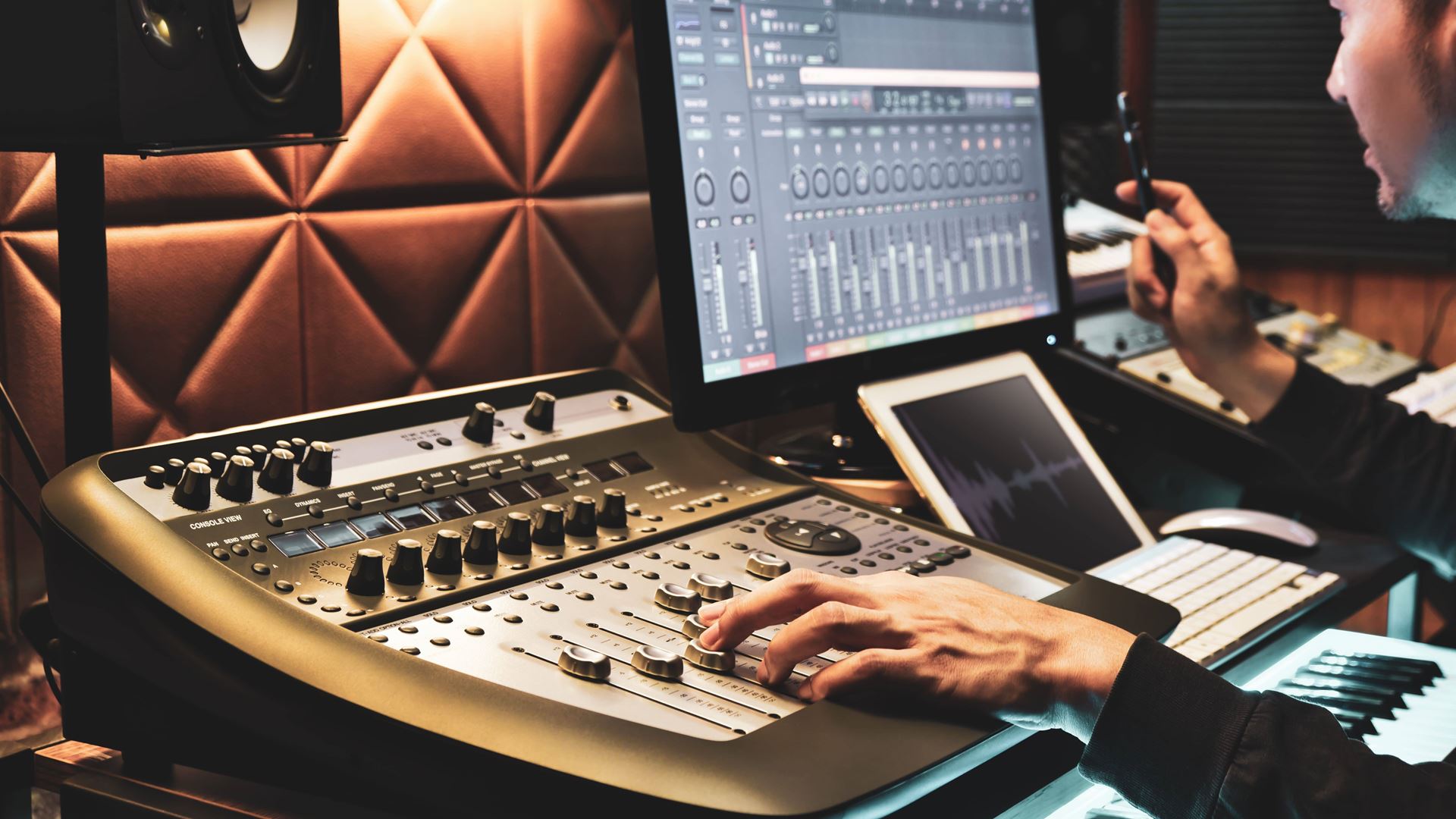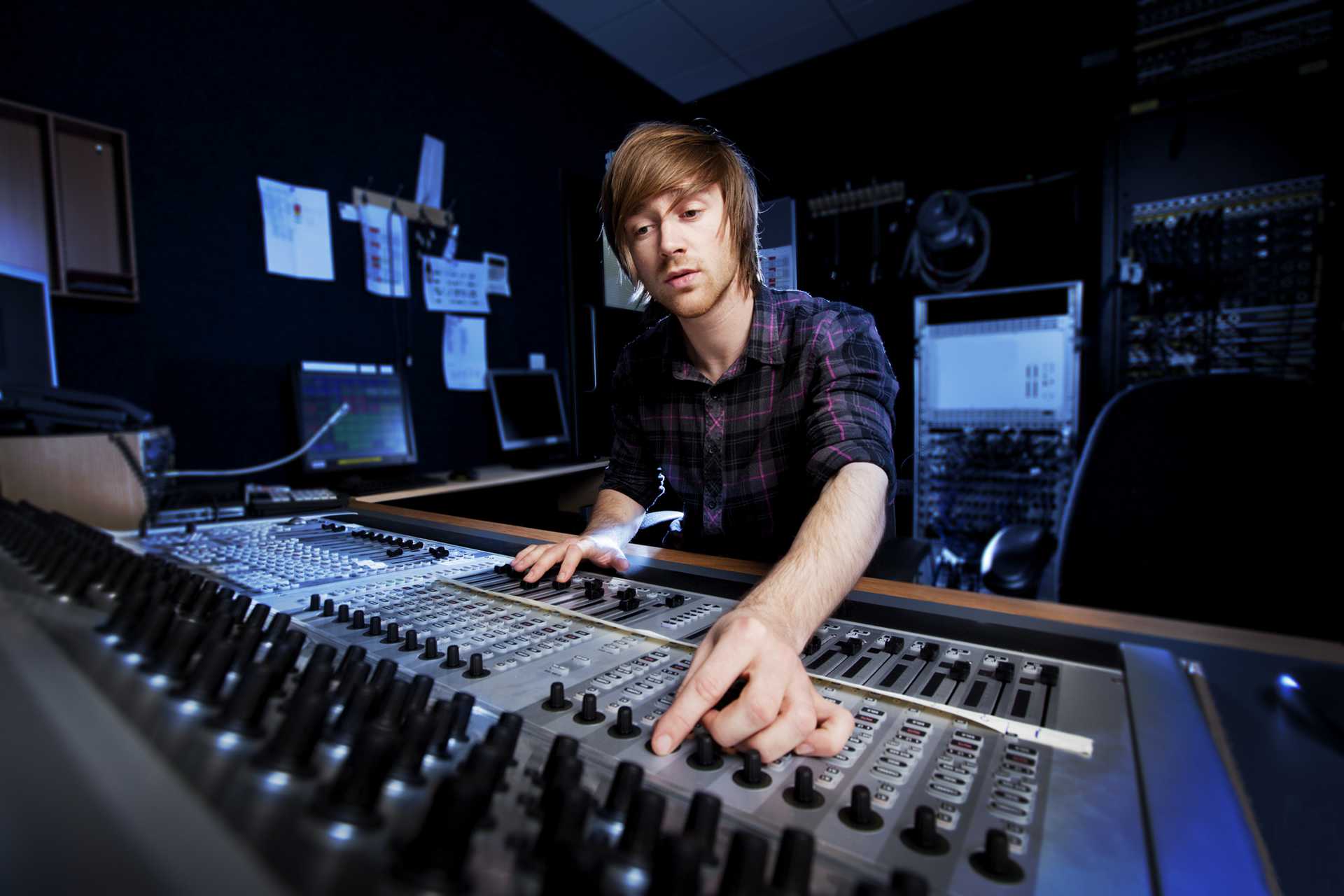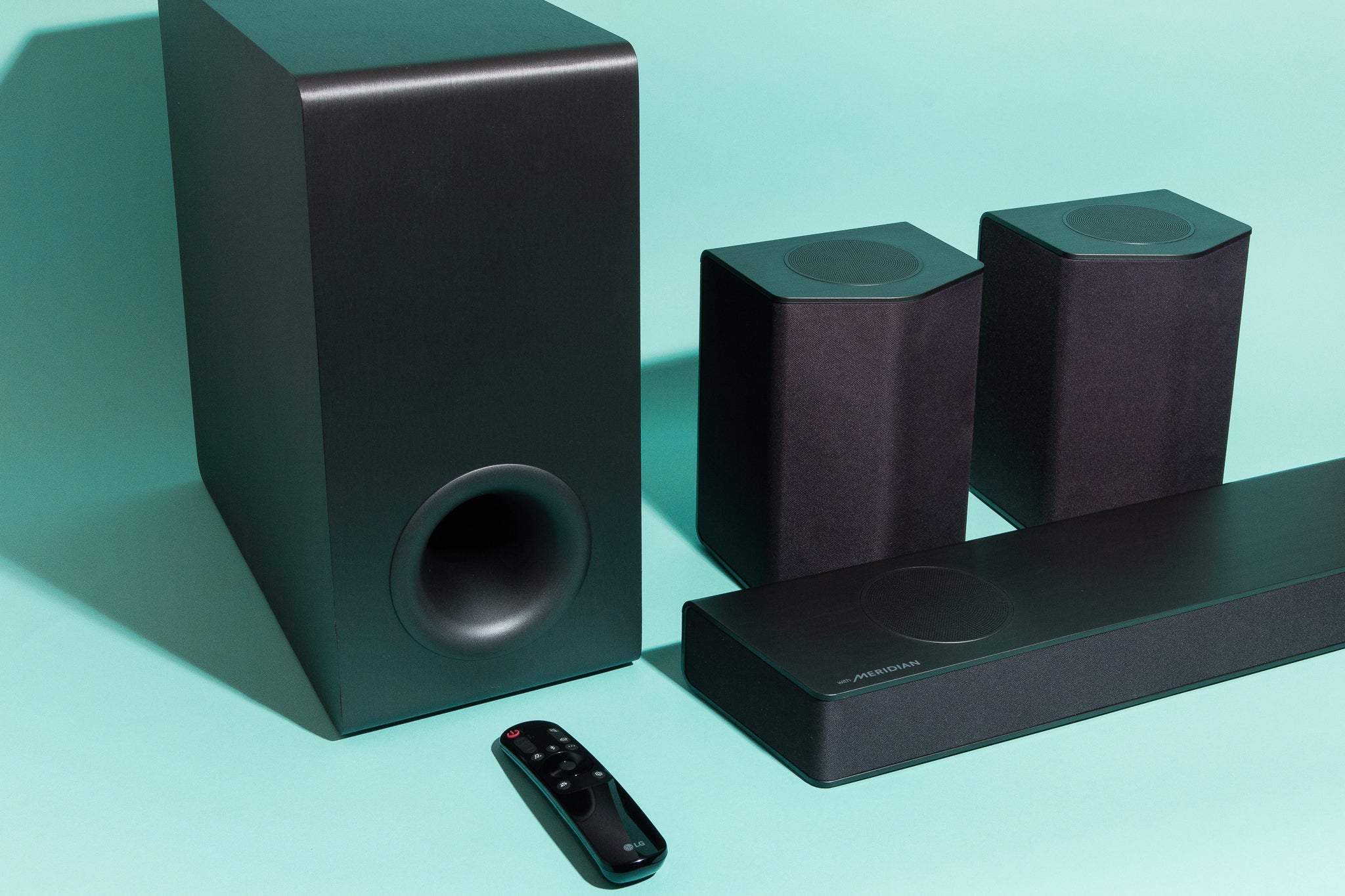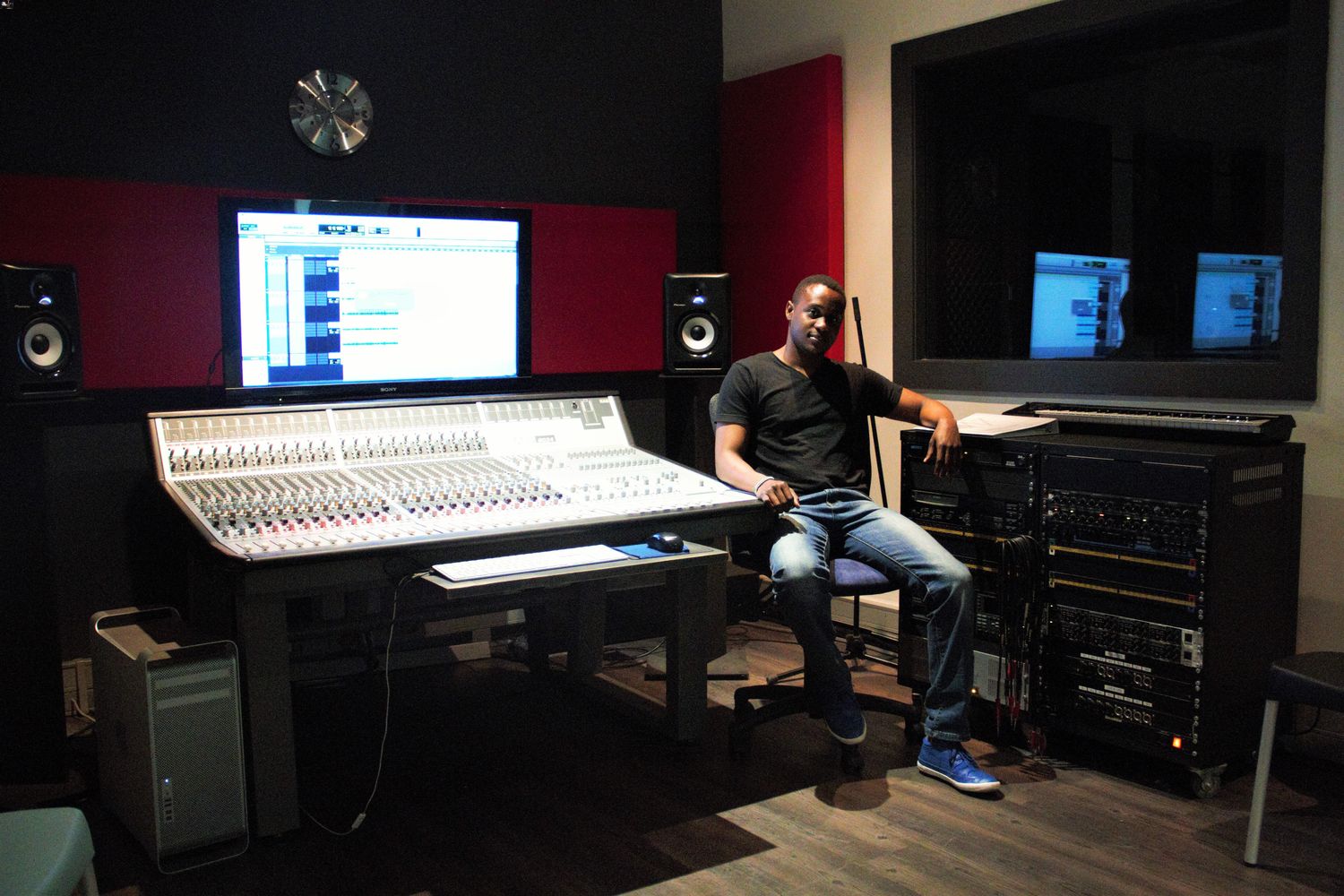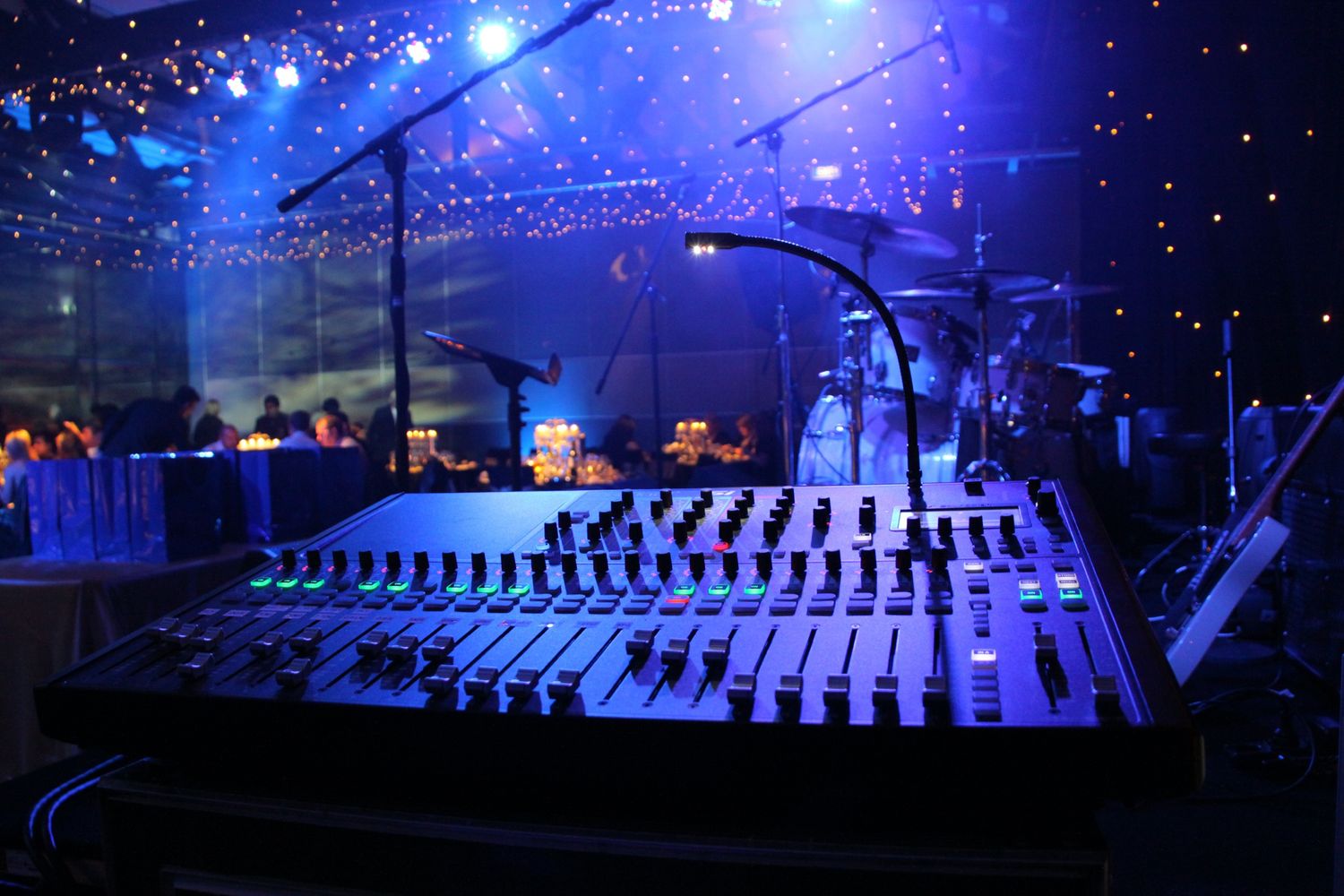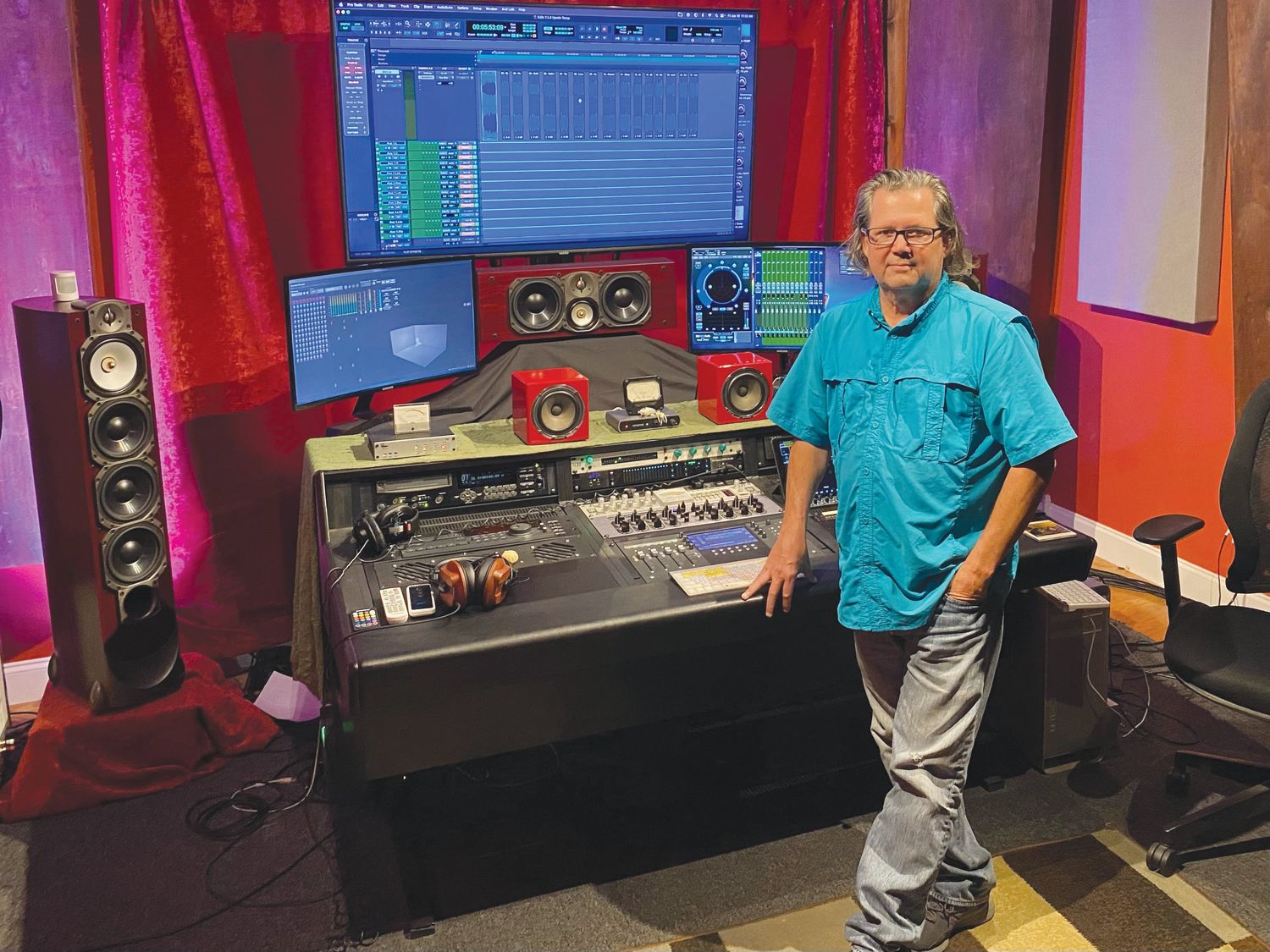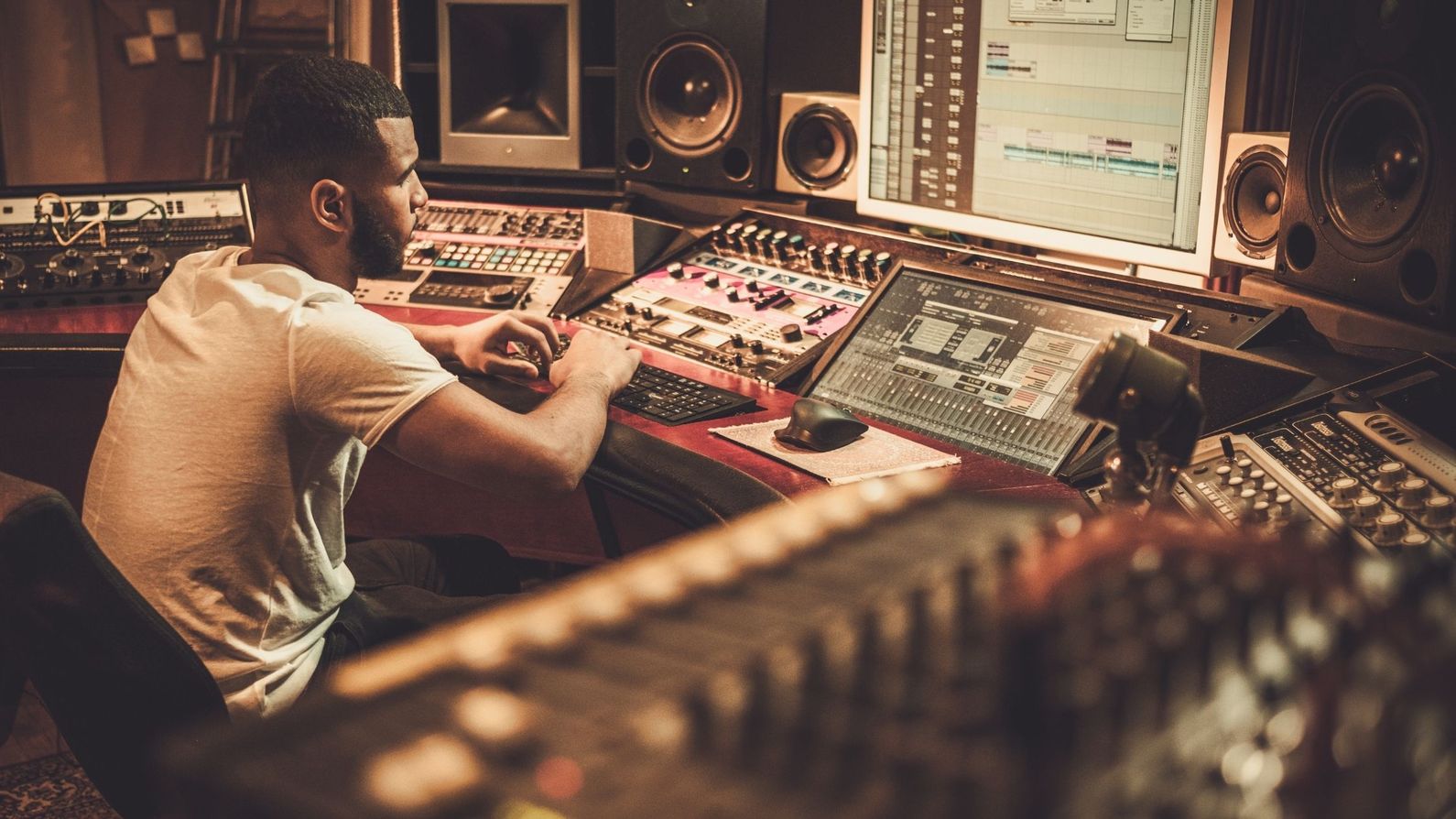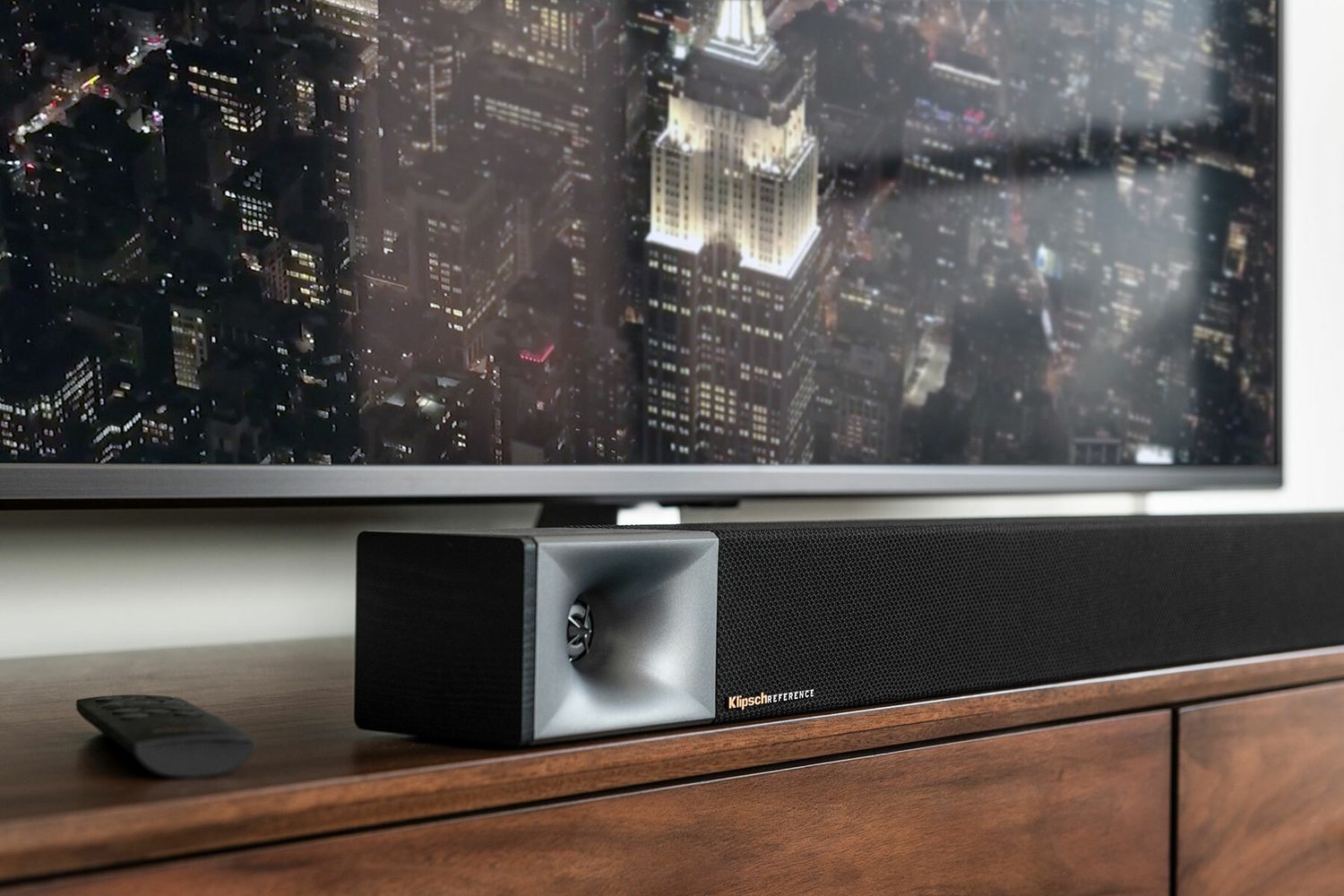Home>Production & Technology>Sound Engineer>What Does A Sound Engineer Do
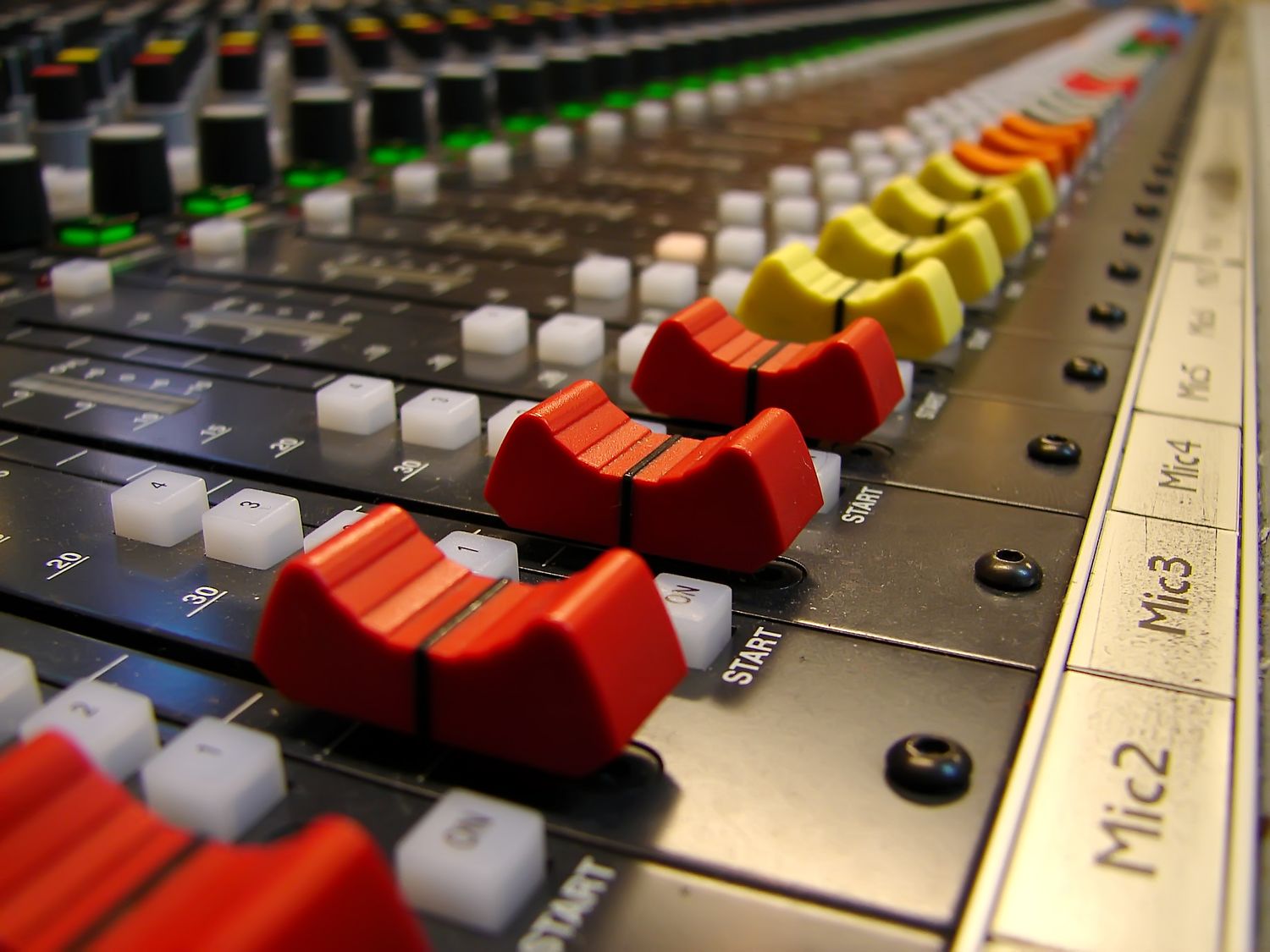

Sound Engineer
What Does A Sound Engineer Do
Published: March 6, 2024
Discover the role of a sound engineer and their responsibilities in music production and live events. Learn about the skills and expertise required for a successful career in sound engineering.
(Many of the links in this article redirect to a specific reviewed product. Your purchase of these products through affiliate links helps to generate commission for AudioLover.com, at no extra cost. Learn more)
Table of Contents
Introduction
Sound engineering is a fascinating and essential aspect of the music and entertainment industry. It involves the art and science of recording, manipulating, and reproducing sound using various techniques and equipment. Sound engineers, also known as audio engineers or mixers, play a crucial role in ensuring that the sounds we hear in music, movies, television shows, and live performances are of the highest quality.
These skilled professionals work behind the scenes, using their technical expertise and creative flair to capture, edit, and mix audio to produce the perfect sound. Whether it's in a recording studio, a concert venue, a film set, or a broadcasting studio, sound engineers are the unsung heroes who make sure that every sound is crisp, clear, and impactful.
Sound engineering is a dynamic and ever-evolving field that requires a deep understanding of acoustics, electronics, and digital audio technology. Sound engineers must possess a keen ear for detail, a passion for music and sound, and a knack for problem-solving. They are responsible for shaping the sonic landscape of a production, enhancing the emotional impact of the audio, and ensuring that the audience experiences the intended auditory journey.
In this article, we will delve into the world of sound engineering, exploring the education and training required to become a sound engineer, the diverse job responsibilities they undertake, the cutting-edge equipment and technology they utilize, the unique work environments they thrive in, and the promising career outlook for aspiring sound engineers. By the end of this journey, you will gain a profound appreciation for the indispensable role that sound engineers play in shaping the way we experience sound in the modern world.
Education and Training
Becoming a proficient sound engineer requires a blend of formal education, hands-on training, and a deep passion for audio technology. While there is no single prescribed path to enter this field, acquiring a solid educational foundation is crucial for mastering the technical and creative aspects of sound engineering.
Many aspiring sound engineers pursue a degree in audio engineering, sound production, or a related field from a reputable technical school, community college, or university. These programs typically offer a comprehensive curriculum that covers essential topics such as acoustics, sound theory, digital audio technology, recording techniques, and mixing principles. Additionally, students gain practical experience through hands-on training in recording studios, live sound venues, and post-production facilities.
In addition to formal education, gaining practical experience through internships, apprenticeships, or entry-level positions is invaluable for aspiring sound engineers. Working alongside seasoned professionals provides a hands-on understanding of the industry, exposure to real-world challenges, and the opportunity to hone essential skills such as microphone placement, signal processing, and audio mixing.
Furthermore, staying abreast of the latest advancements in audio technology and industry trends is essential for sound engineers. Continuous learning through workshops, seminars, and online courses can further enhance their expertise and keep them at the forefront of innovation in the field.
While a formal education lays the groundwork for a career in sound engineering, it is the combination of practical experience, technical proficiency, and a discerning ear that truly sets exceptional sound engineers apart. The ability to adapt to evolving technologies, collaborate effectively with artists and producers, and deliver exceptional sonic experiences is honed through a combination of education, training, and a genuine passion for the art of sound engineering.
Job Responsibilities
Sound engineers shoulder a diverse range of responsibilities that are integral to the production and delivery of high-quality audio across various mediums. Their expertise is crucial in capturing, refining, and reproducing sound to create immersive auditory experiences. Here are the key job responsibilities of sound engineers:
-
Recording and Mixing: Sound engineers are responsible for capturing and mixing audio in recording studios, live venues, or on location. They meticulously set up microphones, adjust recording levels, and manipulate sound sources to achieve the desired sonic balance. Their keen understanding of acoustics and audio equipment allows them to capture pristine recordings and create compelling mixes that enhance the emotional impact of the music or audio content.
-
Post-Production: In post-production settings, sound engineers play a pivotal role in editing, enhancing, and mixing recorded audio. They utilize digital audio workstations (DAWs) and specialized software to clean up recordings, apply effects, and synchronize audio with visual content in film and television productions. Their attention to detail and creative flair contribute to the seamless integration of sound into the final product.
-
Live Sound Reinforcement: During live events, sound engineers manage the audio reinforcement systems to ensure optimal sound quality for performers and audiences. They skillfully operate mixing consoles, set up sound reinforcement equipment, and fine-tune audio settings to deliver clear and balanced sound in diverse venues, ranging from concert halls to outdoor festivals.
-
Sound Design: Sound engineers often delve into the realm of sound design, where they create and manipulate audio elements to evoke specific moods and atmospheres. This can involve crafting sound effects for films, designing immersive audio environments for virtual reality experiences, or shaping the sonic identity of video games.
-
Technical Troubleshooting: Sound engineers are adept at diagnosing and resolving technical issues related to audio equipment, signal flow, and acoustics. Their ability to troubleshoot and problem-solve under pressure is crucial in ensuring uninterrupted audio production and delivery.
-
Collaboration: Sound engineers collaborate closely with artists, producers, and other audio professionals to understand their creative vision and translate it into captivating soundscapes. Effective communication and teamwork are essential as they work together to achieve the desired sonic outcomes.
-
Quality Control: Sound engineers maintain a keen focus on quality control, ensuring that the final audio output meets industry standards and client expectations. They conduct critical listening sessions, perform audio tests, and make necessary adjustments to deliver exceptional sound quality.
In essence, sound engineers are the architects of sound, meticulously shaping and sculpting audio to create impactful and immersive experiences across a wide spectrum of media and entertainment platforms. Their multifaceted responsibilities underscore their indispensable role in the art and science of sound engineering.
Equipment and Technology
The realm of sound engineering is intricately intertwined with a diverse array of cutting-edge equipment and advanced technology that empowers sound engineers to capture, manipulate, and reproduce audio with unparalleled precision and artistry. From state-of-the-art recording gear to sophisticated digital processing tools, sound engineers harness a myriad of equipment and technology to craft captivating sonic experiences across various mediums.
Recording Equipment
Central to the arsenal of a sound engineer are high-quality recording devices and microphones. These devices serve as the frontline tools for capturing pristine audio in recording studios, live venues, and on-location settings. Sound engineers meticulously select and position microphones to capture the nuances of sound sources, leveraging a range of microphone types such as condenser, dynamic, and ribbon microphones to achieve the desired tonal characteristics. Additionally, advancements in recording equipment, such as multi-channel audio interfaces and portable field recorders, have expanded the possibilities for capturing high-fidelity audio in diverse environments.
Digital Audio Workstations (DAWs)
Digital Audio Workstations, commonly referred to as DAWs, form the digital backbone of modern sound engineering. These software platforms provide sound engineers with a comprehensive suite of tools for recording, editing, mixing, and mastering audio. Leading DAWs such as Pro Tools, Logic Pro, and Ableton Live offer a rich array of features including non-linear editing, real-time signal processing, virtual instrument integration, and seamless collaboration capabilities. Sound engineers leverage the power of DAWs to sculpt and refine audio with unparalleled precision, creativity, and efficiency.
Signal Processing and Effects
Sound engineers harness a diverse range of signal processing equipment and audio effects to shape the sonic characteristics of recorded audio. From equalization and dynamic range compression to time-based effects such as reverb and delay, these tools enable sound engineers to enhance the tonal balance, spatial depth, and emotional impact of audio recordings. Moreover, advancements in digital signal processing have led to the proliferation of software-based plugins and virtual effects, offering an extensive palette of sonic manipulation possibilities at the fingertips of sound engineers.
Mixing Consoles and Control Surfaces
In the domain of live sound reinforcement and studio mixing, sound engineers rely on sophisticated mixing consoles and control surfaces to orchestrate the sonic elements of a production. These consoles feature an array of faders, knobs, and digital interfaces that enable precise control over audio levels, panning, and signal routing. Furthermore, the integration of tactile control surfaces with DAWs has revolutionized the art of mixing, providing a tactile and intuitive workflow for sound engineers to craft immersive and dynamic audio mixes.
Virtual Studio Technology (VST) and Virtual Instruments
The advent of Virtual Studio Technology (VST) and virtual instruments has expanded the sonic palette available to sound engineers, allowing them to access a vast array of virtual synthesizers, samplers, and sound modules within their DAW environment. These virtual instruments empower sound engineers to create and manipulate a diverse range of musical sounds, textures, and timbres, opening up new frontiers for sonic experimentation and creative expression.
In essence, the equipment and technology utilized by sound engineers represent the convergence of innovation and artistry, providing them with the tools to sculpt and shape audio in ways that captivate and inspire audiences across the globe. The seamless integration of advanced equipment and technology with the creative vision of sound engineers underscores the transformative power of sound in the modern era.
Work Environment
The work environment of a sound engineer is as diverse as the audio landscapes they help create. Whether in the controlled confines of a recording studio, the electrifying atmosphere of live concert venues, or the dynamic settings of film and television production, sound engineers thrive in a variety of work environments that demand adaptability, technical prowess, and a keen understanding of acoustics.
Recording Studios
Within the hallowed walls of recording studios, sound engineers meticulously craft sonic masterpieces. These environments are meticulously designed to provide optimal acoustics and isolation, allowing sound engineers to capture pristine recordings with unparalleled clarity and fidelity. The studio setting often fosters a collaborative atmosphere, with sound engineers working closely with artists, producers, and fellow audio professionals to bring musical visions to life. The controlled environment of a recording studio provides sound engineers with the precision and focus needed to sculpt and refine audio with meticulous attention to detail.
Live Venues
In the realm of live sound reinforcement, sound engineers find themselves at the heart of pulsating energy and electrifying performances. Whether in intimate clubs, expansive arenas, or outdoor festivals, sound engineers skillfully navigate the challenges of live audio production. They expertly deploy sound reinforcement systems, manage stage monitors, and fine-tune audio settings to ensure that every note and lyric resonates with clarity and impact. The dynamic and fast-paced nature of live venues demands quick thinking, adaptability, and a deep understanding of audio equipment to deliver unforgettable auditory experiences to audiences.
Film and Television Production
Sound engineers in film and television production immerse themselves in the world of audio storytelling. From capturing dialogue on set to designing immersive soundscapes in post-production, they work in tandem with directors, editors, and Foley artists to weave a tapestry of audio that enhances the visual narrative. Whether on location or in post-production facilities, sound engineers leverage their technical expertise to synchronize audio with visual content, create compelling sound effects, and ensure that every sonic element contributes to the immersive storytelling experience.
Remote and On-Location Settings
The work of sound engineers extends beyond traditional studio and venue settings, often taking them to remote and on-location environments. From capturing field recordings in natural landscapes to providing audio support for outdoor events, sound engineers adapt to the unique acoustic challenges and logistical demands of these settings. Their ability to harness portable recording equipment, mitigate environmental noise, and capture authentic sonic textures in diverse locales underscores their versatility and resourcefulness.
In essence, the work environment of a sound engineer is a dynamic tapestry of creativity, technical precision, and adaptability. Whether in the controlled confines of a studio, the exhilarating energy of live venues, the immersive realm of film and television, or the uncharted territories of remote settings, sound engineers bring their expertise to bear, shaping the way we experience sound across a myriad of captivating environments.
Career Outlook
The career outlook for sound engineers is marked by a blend of innovation, opportunity, and adaptability in an ever-evolving audio landscape. As technology continues to reshape the way we create, consume, and interact with audio content, sound engineers find themselves at the forefront of a dynamic industry poised for growth and transformation.
The proliferation of streaming platforms, virtual reality experiences, interactive media, and immersive audio technologies has expanded the horizons of audio production and consumption. This shift has created a demand for sound engineers who possess a deep understanding of spatial audio, interactive sound design, and multi-platform delivery. As a result, sound engineers with expertise in 3D audio, ambisonics, and spatial audio processing are well-positioned to capitalize on the burgeoning opportunities in these emerging domains.
Furthermore, the convergence of music production, film, gaming, and live events has led to a demand for versatile sound engineers who can seamlessly navigate across these diverse realms. Sound engineers who can adeptly blend traditional recording techniques with interactive audio experiences, live sound reinforcement, and immersive sound design are poised to thrive in this multifaceted landscape.
The advent of remote collaboration tools, cloud-based production workflows, and virtual studio environments has also opened up new avenues for sound engineers to collaborate with artists, producers, and content creators across geographical boundaries. This global interconnectedness presents sound engineers with the opportunity to contribute to a wide array of projects, expand their professional networks, and engage in cross-disciplinary collaborations that enrich their creative and technical repertoire.
Moreover, the increasing emphasis on audio accessibility and inclusivity has propelled the demand for sound engineers who are well-versed in audio description, audio post-production for accessibility, and adaptive audio technologies. Sound engineers who champion inclusive audio practices and contribute to making audio content more accessible to diverse audiences are instrumental in driving positive change within the industry.
As the boundaries between music, film, gaming, and interactive media continue to blur, sound engineers are poised to play a pivotal role in shaping the future of audio experiences. By embracing emerging technologies, honing their expertise in diverse audio disciplines, and championing inclusive and immersive audio practices, sound engineers can chart a compelling career trajectory that resonates with the evolving needs and aspirations of global audiences.
In essence, the career outlook for sound engineers is characterized by a tapestry of opportunities that beckon those who are passionate about pushing the boundaries of audio creativity, embracing technological innovation, and shaping the way we perceive and experience sound in the digital age.
Conclusion
In conclusion, the world of sound engineering is a captivating blend of technical expertise, creative artistry, and unwavering dedication to shaping the way we experience sound. From the controlled confines of recording studios to the electrifying energy of live venues, and the immersive realm of film and television production, sound engineers stand as the architects of sonic landscapes, meticulously crafting audio experiences that resonate with audiences on a profound level.
The journey of a sound engineer begins with a deep passion for audio technology, a thirst for knowledge, and a commitment to honing their craft through formal education, hands-on training, and continuous learning. The fusion of technical proficiency, a discerning ear, and a keen understanding of industry trends equips sound engineers to navigate the multifaceted responsibilities they shoulder with precision and artistry.
The equipment and technology at the disposal of sound engineers represent the vanguard of innovation, empowering them to capture, manipulate, and reproduce audio with unparalleled precision and creativity. From high-fidelity recording gear and sophisticated digital processing tools to immersive spatial audio technologies, sound engineers harness a diverse array of tools to craft captivating sonic experiences across various mediums.
The work environment of a sound engineer is a dynamic tapestry of creativity, technical precision, and adaptability. Whether in the controlled confines of a studio, the exhilarating energy of live venues, the immersive realm of film and television, or the uncharted territories of remote settings, sound engineers bring their expertise to bear, shaping the way we experience sound across a myriad of captivating environments.
Looking ahead, the career outlook for sound engineers is marked by a blend of innovation, opportunity, and adaptability in an ever-evolving audio landscape. As technology continues to reshape the way we create, consume, and interact with audio content, sound engineers find themselves at the forefront of a dynamic industry poised for growth and transformation.
In essence, the world of sound engineering is a testament to the transformative power of sound, where technical prowess converges with creative expression to craft immersive auditory experiences that resonate with audiences across the globe. Sound engineers, with their unwavering commitment to sonic excellence, continue to shape the way we perceive and interact with sound, enriching the fabric of our cultural and artistic tapestry.

